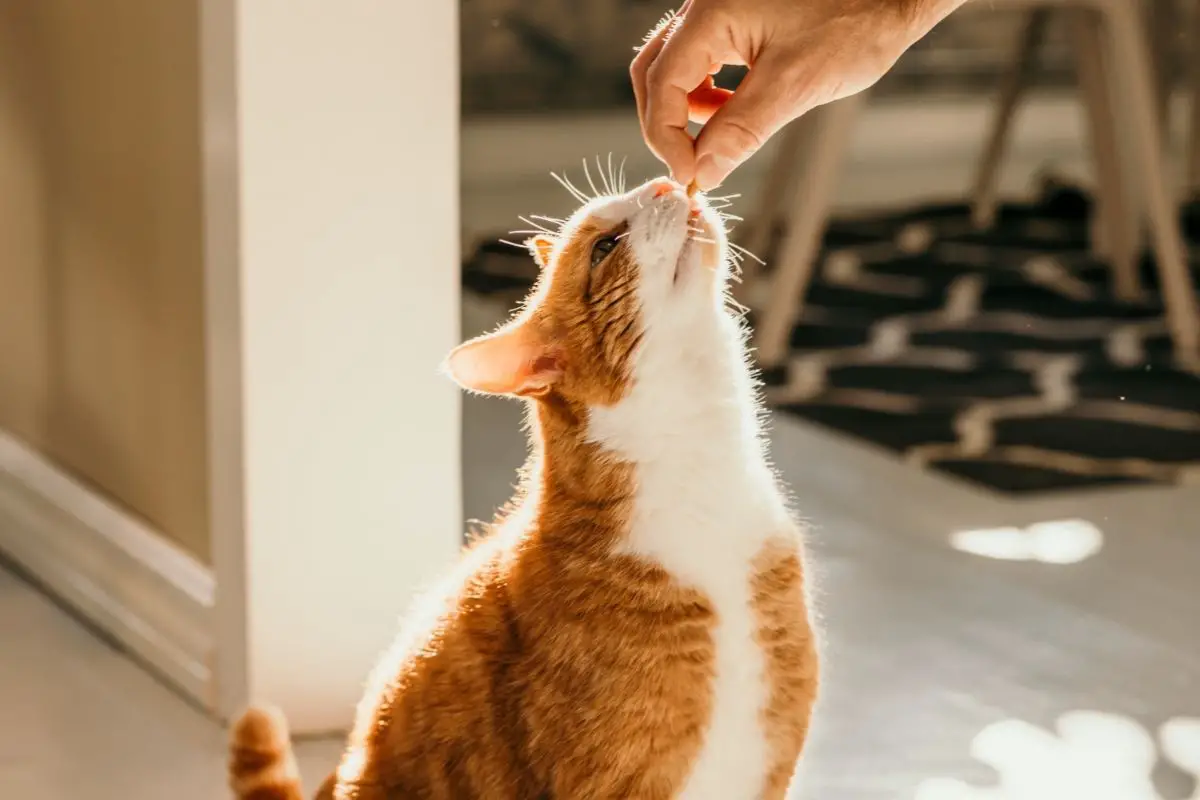Worms are among the many common problems that cats experience. The following remedies for deworming cats can help you quickly eliminate any worms present in your cat’s litter box. In this article we will be discussing 10 Home Remedies for Worms in Cats.
Contents
- 1 Causes For Worms In Cats
- 2 Worms in Cats: Symptoms And Signs
- 3 Home Treatments For Worms In Cats
- 3.1 1. Eating Pumpkin Seeds
- 3.2 2. Diatomaceous Earth For Food
- 3.3 3. Enforce Clean Litter Boxes
- 3.4 4. Keeping The House Clean
- 3.5 5. Use A Natural Dewormer
- 3.6 6. Tidying The Yard
- 3.7 7. Parsley Water Consumption
- 3.8 8. Consuming Fresh Papaya
- 3.9 9. Intake Of Grapefruit Seed Extract
- 3.10 10. Turmeric Consumption
- 4 Final Thoughts
- 5 Learn More
Causes For Worms In Cats
All cats are capable of carrying a variety of worms. Intestinal parasites most frequently found in cats include:
Roundworms
A type of worm that is often found in kittens and cats. In their adult form, roundworms reach a length of 3 to 4 inches and have a spaghetti-like appearance.
Cats can get roundworms by eating the feces of infected cats, and those infected with roundworms can also get roundworms through their mother’s milk.
Tapeworms
These long, flatworms can range anywhere between 4 and 28 inches in length.
Tapeworms can be transmitted to cats via ingested intermediate hosts, such as a flea or rodent. In the stool or on your cat’s fur, you will find white segments that look like rice.
Hookworms
These are mainly found in the small intestine. In comparison to roundworms, they are much smaller. The hookworm is less than an inch long and feeds off blood from its host.
Through feces, hookworm eggs develop into larvae. Hookworms can be transmitted to cats by contact with their skin or ingestion.
An individual can catch worms through ingestion of infected rodents, milk, feces, or contact with an infected, infected animal.
In addition, cats can also become infested by ingesting fleas that carry worms.
Dogs and cats commonly suffer from worm infestations caused by fleas. A simple way to prevent worms is to keep your home and pets flea-free.
Worms in Cats: Symptoms And Signs
Many times, when cats or kittens have worms, there are no symptoms until too many worms are present or the cat’s condition rapidly deteriorates.
It is important for you to be aware of the symptoms of worm infestations in cats. Cats and kittens with worms may show a variety of signs and symptoms.
The symptoms of infestations vary based on the worm type and the location. Worm infestations are typically associated with the following symptoms:
- Throwing up (sometimes with worms in the vomit)
- Diarrhea is a common ailment (with or without blood)
- Feces that are tarry.
- Loss of weight.
- Abdominal distension.
- Lesions on the skin.
- Body condition is generally poor, and the coat is drab.
Home Treatments For Worms In Cats
Whenever a cat starts showing symptoms of parasites, you should start treatment immediately.
To ensure you are treating the correct condition, check for intestinal worms in your cat with your veterinarian.
Since worms cannot always be seen with the naked eye, veterinarians may be able to detect them. Treatment should begin as soon as you confirm that your pet has worms.
We explain how to rid your cat of worms with the following home remedies.
1. Eating Pumpkin Seeds
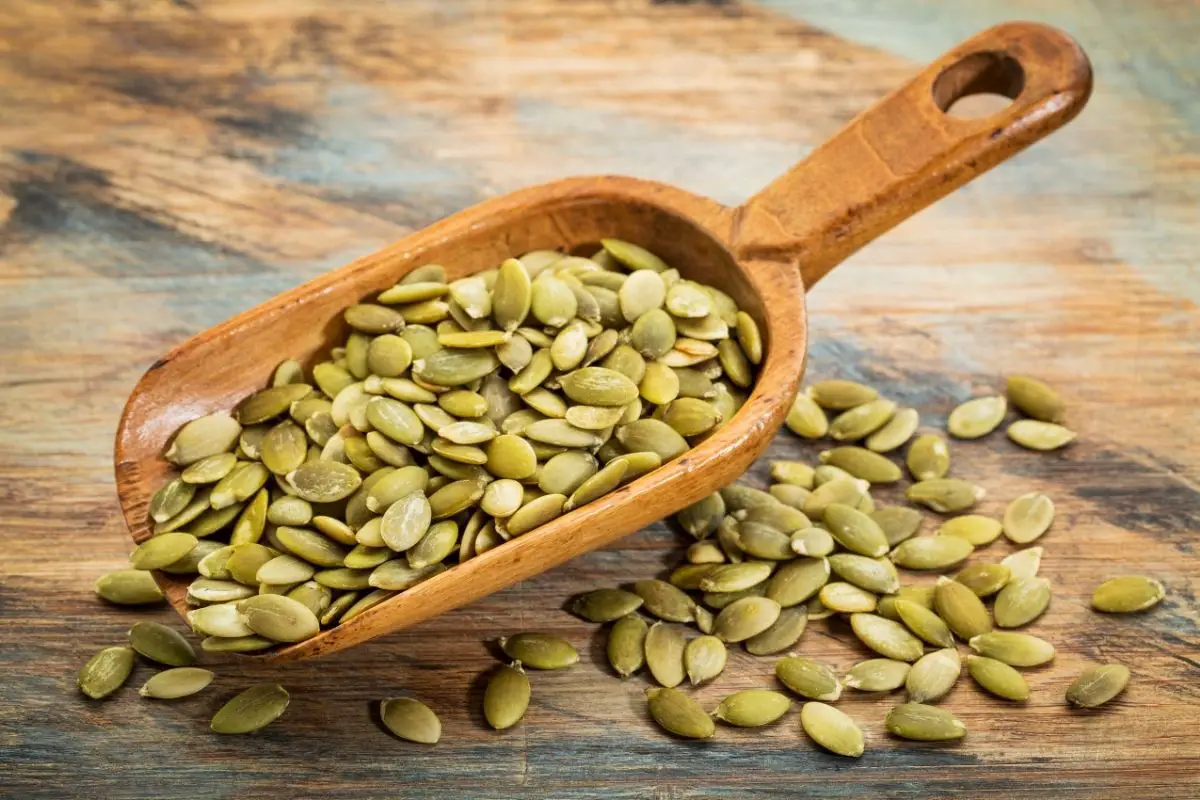
The antiparasitic qualities of pumpkin seeds are well known. Any larvae or adults present will be killed as well as prevented from returning using this remedy.
You can incorporate pumpkin seeds into your cat’s regular food to help fight parasites internally directly.
Ingredients Needed
- One cup of organic, raw pumpkin seeds
- Mortar & pestle
- Food for your cat that is moist (your cat’s favorite)
Method
- Put a little amount of pumpkin seeds in the mortar and pestle after rinsing.
- Make a fine powder from the pumpkin seeds.
- 1 teaspoon of wet cat food should be added to your cat’s bowl.
- Until 21 days have passed, continue to add a teaspoon of crushed pumpkin seed into your cat’s wet food every day.
2. Diatomaceous Earth For Food
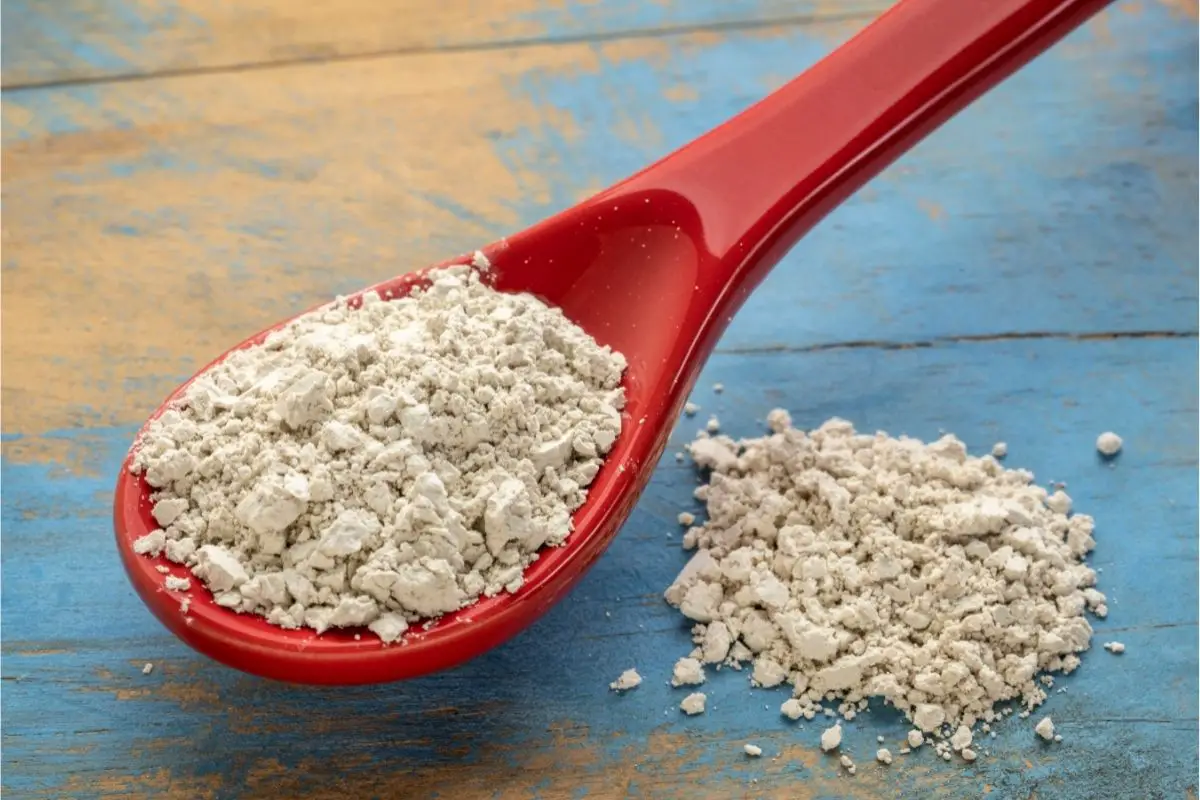
The diatomaceous earth in food grade can be used to combat internal as well as external parasites. It is a gentle yet effective method that kills and prevents worms in cats by letting them eat natural diatomaceous earth.
Ingredients Needed
- Your cat’s favorite wet food
- Diatomaceous earth (food grade) 2 tbsp
Process
- You can sprinkle one teaspoon of Food Grade Diatomaceous Earth on your cat’s wet food every day.
- At least one month after adding the Food Grade Diatomaceous Earth to your cat’s food, you can stop adding it.
3. Enforce Clean Litter Boxes
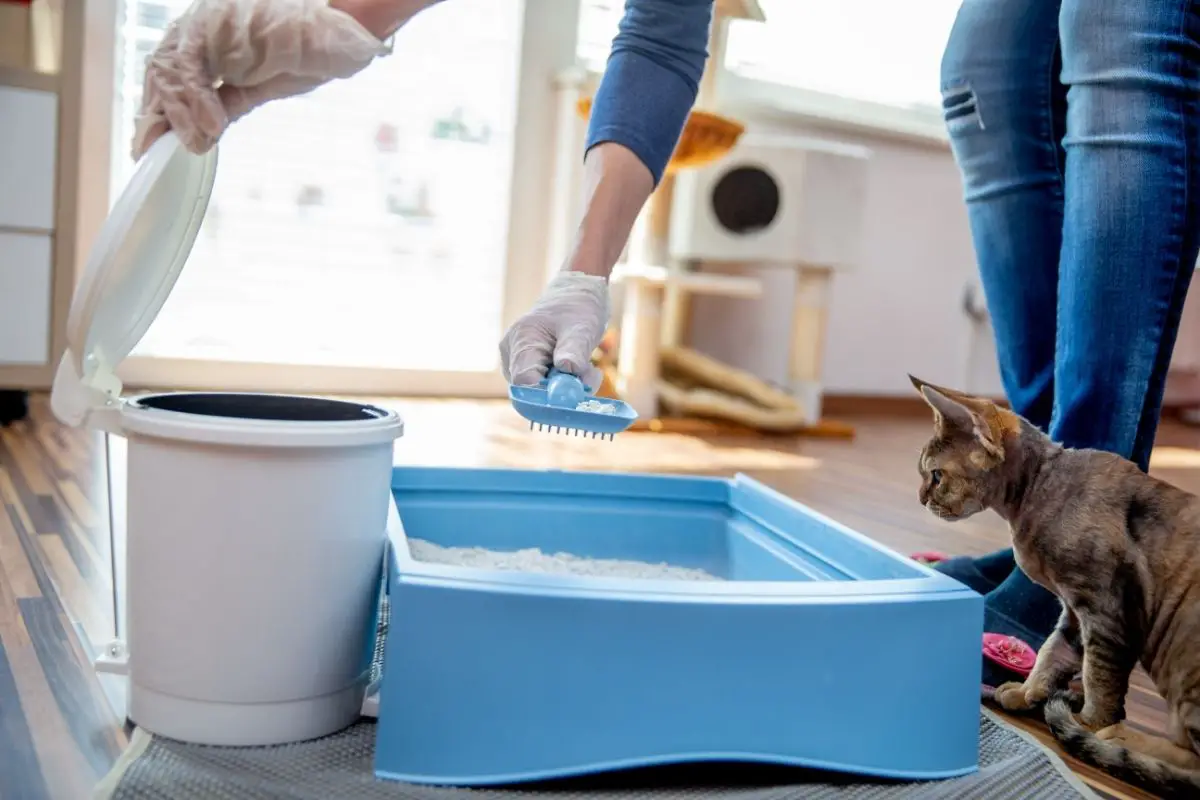
When you have more than one cat in your home, the litter box may contribute to parasites.
In addition to maintaining good hygiene for your cat and preventing any worms from spreading, which can help protect your cat from existing worms.
Ingredients Needed
- Little Scoop
- New litter
- Bleach
Method
- You should promptly remove your cat’s waste after it defecates.
- On a daily basis, scoop your litter box.
- Every week, replace the litter with fresh litter.
- Bleach should be added to the litter box each time it is changed.
- Your cat will benefit from this routine cleaning throughout its lifetime.
4. Keeping The House Clean
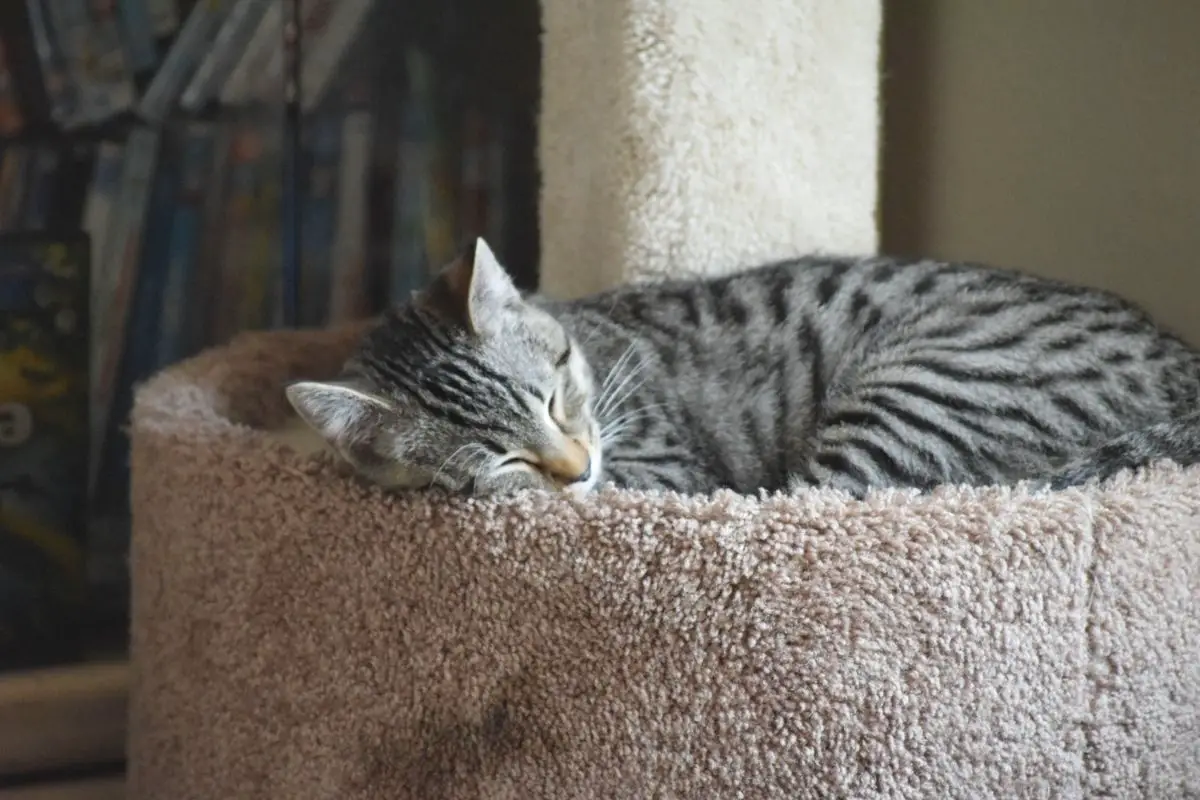
You can keep your house clean so that no unwanted insects attach to undesirable areas looking for a new host.
Ingredients Needed
- Vacuum
- Disinfectant
- Bleach
Method
- Pay attention to the places and surfaces where your cat likes to hang out when you vacuum your home.
- To kill any eggs or larvae, clean all surfaces with disinfectant and bleach.
- You can prevent the spread of worms by cleaning your home every day or every two days.
5. Use A Natural Dewormer

Veterinarians usually prescribe pills to treat cats with worms. When administered properly, the pills are meant to kill the most common parasite found on cats.
Alternatively, there are natural dewormers for cats, such as Natural Pet D Wormer, if you do not trust pills. Herbs are typically mixed into them, so they are only toxic to parasites, and won’t harm your cat.
Ingredients Needed
- NaturePet D Wormer or another similar herbal deworming product
- Food for cats
Method
- Ask for a herbal dewormer at your local pet store. You can also purchase one online.
- How to use the natural dewormer is explained in the instructions.
- You can add the herbal remedy to your cat’s food or water in the appropriate amount.
- As directed on the label, continue the treatment.
6. Tidying The Yard

Cleaning your yard can prevent your cat from getting infested with worms. The best way to prevent fleas from happening in your yard is to keep it neat, because fleas transmit worms.
Ingredients Needed
- Rake
- Cutters
- Weed Eater
- Mower
Method
- Leaves and dead plants should be removed.
- Overgrown bushes, shrubs, flowers, or trees should be trimmed.
- Flea larvae love tall grass and weeds, so keep them out of your yard.
- To keep fleas away, keep your yard clean at all times.
7. Parsley Water Consumption

As a diuretic, fresh parsley is most useful during the deworming process since it is nutrient-rich and high in vitamins. Diuretic substances allow the body to work effectively and be healthy.
Parsley also has high antioxidant content, which aids in the elimination of toxins.
Ingredients Needed
- Parsley (curly, flat leaf, whatever) – a bunch (any type).
- 1 quart of boiling water
- Filter
- Storage jar
Method
- The parsley should be added to the boiling water and simmered for 3 minutes.
- Allow to cool after removing from heat.
- Add the parsley to the storage jar after straining it from the water.
- Parsley tea can be stored in the refrigerator for up to two weeks.
- Add 12 tablespoons. You should add the parsley tea once a day to your cat’s drinking water for ten days.
8. Consuming Fresh Papaya

In addition to providing your cat with essential nutrients, papaya can also aid his digestive health. The intestines can be helped to rid themselves of worms and parasites with papaya.
Ingredients Needed
- Blade
- Cutting board
- Papayas that are fresh
- Your cat’s favorite wet food
Method
- The papaya should be washed and chopped as fine as possible.
- To your cat’s wet food, add 12 teaspoons of chopped fresh papaya.
- If you want to see results, add 12 tsp once a day for two weeks
9. Intake Of Grapefruit Seed Extract

Infections such as viruses, fungi, bacteria, and parasites can be fought effectively with the extract of grapefruit seeds.
The extract of grapefruit seeds is effective against both single-celled parasites and multicellular parasites. Additionally, grapefruit seed oil naturally contains a number of compounds, such as:
- High levels of vitamin C
- Hesperidin- an immune system booster
- High levels of antioxidants
Ingredients Needed
- One jar of grapefruit seed extract
- Food processors or mortars and pestles
Method
- Make a powder out of the grapefruit seed extract.
- The powder should be added directly to the food of your cat per 2.2 pounds.
- For a period of two weeks, you should apply the powder once per day.
10. Turmeric Consumption

Humans can also benefit from turmeric’s numerous health benefits, and animals can also consume turmeric for the same reasons.
Because turmeric contains four parasite-fighting agents naturally found in it, turmeric is especially effective at fighting parasites.
As an anti-inflammatory, turmeric is also helpful for discomfort or swelling caused by intestinal worms.
Ingredients Needed
- Turmeric powder, dried
- Your choice of wet cat food
Method
- You should add 1/16th to 1/8th of a teaspoon to your cat’s wet food for every 10 pounds of weight.
- Blend well.
- For at least ten days, add turmeric to your cat’s daily food.
Final Thoughts
Now that you have read “Home Remedies For Worms In Cats,” Please note that Worms can be a harmful and irritating parasite. Herbal remedies can ease your cat’s symptoms and stop the worm infestation altogether.
You should always tackle an infestation of worms as early as possible for your cat to be as healthy as possible going forward.
